
B12: Why it's not just a vegan issue
Vitamin B12 (also known as cobalamin) is absolutely vital for proper health.
What you might not know is that B12 is produced by bacteria found in soil as well as in the guts of animals (including humans) - but in order for the bacteria to make B12 the soil needs to contain the mineral cobalt. The B12 produced within our guts is too far down our digestive system to be absorbed by our body but is excreted in our feces. Our closest relatives, gorillas, get their B12 from accidental eating of soil (and their own feces) containing B12 when naturally eating their plant-based diet.
Due to declining soil quality from intensive over-farming making the soil deficient in cobalt, and because our vegetables are super-washed (because we would rather not eat soil/manure) vegans don't get enough B12 without supplementation and fortification.

Soil quality is declining due to intensive farming practices
Early humans received plenty of B12 from the good quality (cobalt-rich) soil that was yet to be intensively farmed and drained of nutrients, and because they drank dirty ("natural") water from rivers which also contained B12 and B12 producing bacteria.

'Natural' (unfiltered) water from rivers can contain undesirable bacteria
The declining soil quality isn't just a problem for humans though - it's a problem for farmed animals too. Cattle naturally get B12 and bacteria that produces B12 from clumps of dirt around the grass roots, and chickens get B12 from pecking around for worms and other insects.
But most factory-farmed animals are kept indoors and never even see soil during their lifetimes, so would certainly be deficient without supplementation. These horrible artificial conditions make the "vegan diet is unnatural" argument seem somewhat ironic. In fact, the majority of all B12 supplements manufactured are actually given to farmed animals.
So people who then consume the meat from these animals are just receiving the B12 which originally came from the supplements fed to the animals. Isn't it far better to simply take a B12 supplement and cut out the middle man?
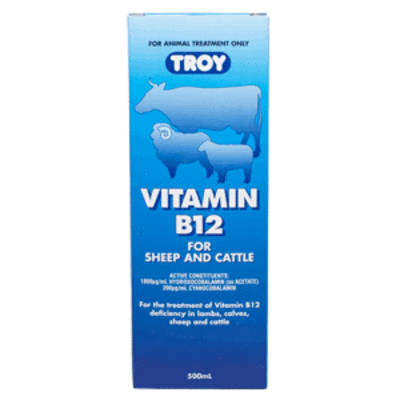
Most of the B12 supplements manufactured are given to farmed animals
The "natural" way of consuming B12 - from unwashed vegetables and unfiltered water in a "natural" environment - isn't a safe way for modern day humans because there are also other less desirable bacterias present in these places such as E. coli and salmonella. So in today's world it's much safer to just get our B12 from a supplement - don't fall into the fallacy of thinking "natural" is always better.
Unwashed vegetables aren't the best way to get your B12
The liver can store 3 to 5 years worth of vitamin B12 and we only lose 0.1% of our B12 stores in urine each day so signs of a dietary deficiency aren't usually immediate.
A B12 deficiency left unfixed is extremely serious, but fortunately B12 supplements are inexpensive and effective.
B12 deficiency isn't just a problem for vegans
The Framingham Offspring study found that 39% of the general population may be in the low normal and deficient B12 blood level range, and it was not just vegetarians or older people. This study showed no difference in the B12 blood levels of younger and older adults. Most interestingly there was no difference between those ate meat and those who did not. The people with the highest B12 blood levels were those who were taking B12 supplements and eating B12 fortified cereals.
B12 deficiency is something that anyone can suffer from since absorption of B12 requires an intact and functioning stomach, pancreas, sufficient quantities of intrinsic factor (IF), and proper small bowel function. Problems with any one of these organs makes a vitamin B12 deficiency possible. For people who have problems absorbing B12 through their digestive system, injections can be given.
So why are meat eaters at risk for B12 deficiency despite eating meat containing B12?
In order for B12 to be absorbed it needs to attach to a carrier called Intrinsic Factor (IF) to pass from the intestines into the blood stream. Intrinsic Factor is made by parietal cells in the stomach. A lack of Intrinsic Factor causes the classic B12 deficiency disease called pernicious anemia where the body makes antibodies to attack parietal cells and destroy them.
Until recently we didn't know why autoimmune disorders like pernicious anemia developed but new research suggests that eating animal products causes animal sugars such as Neu5Gc to become attached to the human cells that line hollow organs such as the stomach.
Our immune system sees any cells with animal sugars on them as foreign and makes antibodies to destroy them. This attack by our immune system causes chronic inflammation and may explain many conditions such as atrophic gastritis that destroys both the acid-producing cells and the IF-producing cells in older people who eat meat.
Which might be why many elderly people develop a B12 deficiency regardless of their diet. In fact in the US the Centers for Disease Control (CDC) and the Institute of Medicine recommend B12 supplements for everyone over 50 years old.
What are the symptoms of B12 deficiency?
Symptoms of a B12 deficiency are:weakness, tiredness, or lightheadedness; heart palpitations and shortness of breath; pale skin; a smooth tongue; constipation, diarrhea, a loss of appetite, or gas; nerve problems like numbness or tingling, muscle weakness, and problems walking; vision loss.
Regardless of your diet it's always a good idea to get annual blood tests to remain proactive in combating any deficiencies before symptoms are allowed to develop.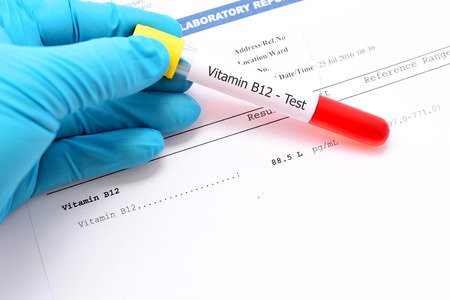
Regular blood tests help catch any deficiencies early
Spirulina does not contain (useful) B12
Spirulina was once thought to be a source of B12, but unfortunately it actually contains a B12 analogue - an "inactive" B12 that competes with active B12 for absorption, so it may actually speed up a deficiency. Some blood tests also can't tell the difference between B12 analogues and real B12, so may show adequate levels of B12 even when there is a deficiency.
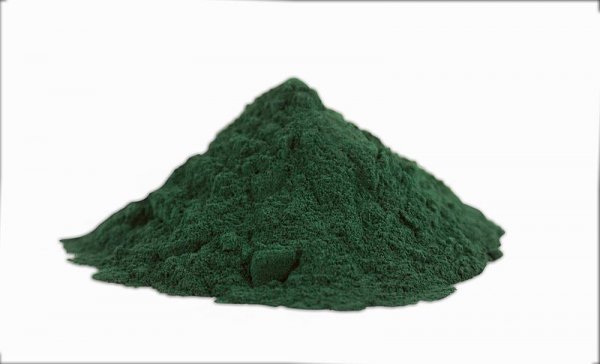
Spirulina is not a good source of B12 and only contains B12 analogues
Because vitamin B12 is water-soluble it's extremely hard to overdose, and because the body is quite inefficient at absorbing B12, supplements often contain 10,000% RDA, sometimes even 100,000% RDA, to try and ensure the body actually absorbs some of it.
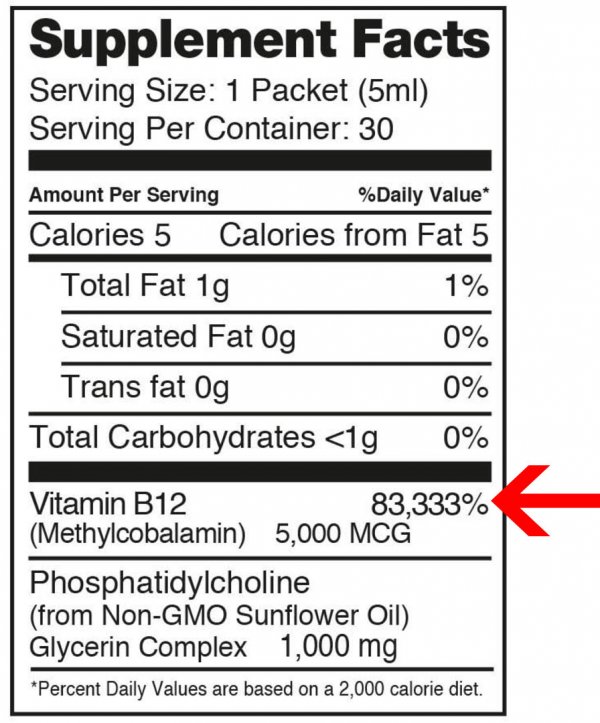
Many supplements contain what seems like 'huge' amounts of B12
Another source of B12 that can provide adequate amounts are fortified foods. These are foods that have had B12 added and if you eat these foods regularly, i.e. several times a day, then you may get enough B12 to hit your RDA of at least 3µg (0.003mg) per day. Examples are nutritional yeast, some breakfast cereals and fortified plant-based milks.
Some fermented foods may contain active B12 but the common ones such as miso and tempeh do not contain B12. Plants are not a reliable source of B12.
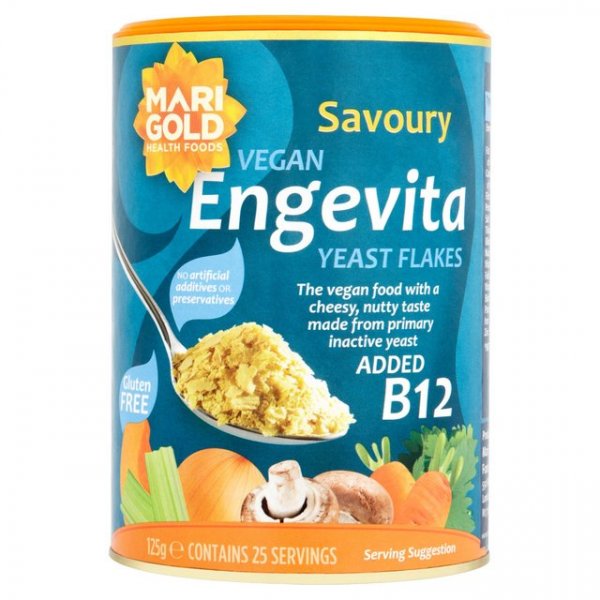
Fortified foods can provide adequate B12
So in summary, it's so much better to consume a supplement directly rather than first feeding that supplement to an animal and then eating the animal. And it's easy, convenient and safe to take a B12 supplement, but if you don't want to take a supplement ensure you're eating plenty of fortified foods. In the USA, the Centers for Disease Control (CDC) and the Institute of Medicine recommend B12 supplements for everyone over 50 years old, regardless of diet.
Methylcobalamin vs Cyanocobalamin Supplements
With B12 supplements there is an unnecessarily wide array of choice. Two of the main types are methylcobalaminand cyanocobalamin.Taking either of these is fine, but cyanocobalamin requires an extra detoxification step to get rid of the binding cyanide. Cyanocobalamin is converted to methylcobalamin as part of digestion.
The amount of cyanide in cyanocobalamin is so minuscule it's not a problem for the body if you have healthy kidney function, but if you're a smoker (cigarette smoke contains high amounts of cyanide) or consume large amounts of cassava (naturally high in cyanide) then cyanocobalamin isn't recommended as your tissues may contain too much cyanide for cyanocobalamin to be converted.
In theory sublingual (dissolve under the tongue) supplements should be better absorbed because they skip the whole intestinal absorption process and send B12 directly to the blood through membranes under the tongue. However in studies it seems there is no significant difference between oral and sublingual B12 for the treatment of B12 deficiency. Sublingual is usually more expensive so the best choice is simply oral methylcobalamin.
As for recommended amounts:
- Eat fortified foods two or three times a day to get at least 3 micrograms (mcg or µg) of B12 a day
- OR Take one B12 supplement daily providing at least 10 micrograms
- OR Take a weekly B12 supplement providing at least 2000 micrograms.
The less frequently you obtain B12 the more B12 you need to take, as B12 is best absorbed in small frequent amounts. The recommendations above take full account of this. There is absolutely no harm in exceeding the recommended amounts or combining more than one option.
Please share this article to help educate others. If you have any questions or any topics or stories you'd like covered, drop us an email: [email protected].
Subscribe to see more!
Love this content?
Receive our awesome newsletter straight to your Inbox!

 Your email address will always stay private.
Your email address will always stay private.
